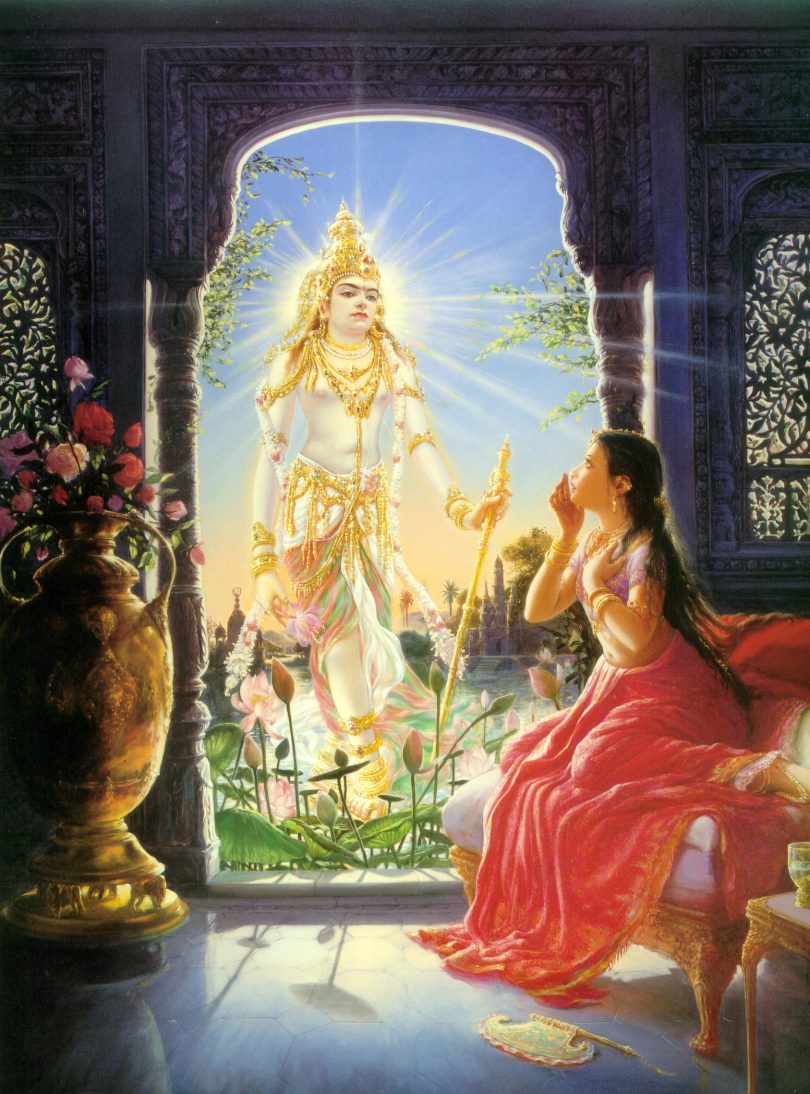Question: I just noticed while watching various shows about epics, Mata Devaki was blessed by the boon ‘asht-putr-vati-bhava’, Maharaj Dasarath desired for ‘sons’, Mata Kunti desired for ‘sons’, Kamsa did not believe that a ‘baby-girl’ could ever harm him, Mata Satyavati desired ‘sons’ and ‘grandsons’, Maharaj Dhrupad performed ‘putr-kamayeshti-yagya’, Maharaj Dhritrastra gave birth to one hundred sons (which he was very proud of) and a daughter, and many more examples depict that all wanted sons.
Then I thought that maybe kings always wanted an heir; but then was three or four heirs not enough that they desired all their off springs to be males? And what if everybody desired in that way – there would have been no marriages taking place.
You always need a girl child for marriage, is she only made for ‘marriage’ – only required for this, and that undesirable otherwise? And then too her marriage was used to expand kingdom’s boundaries.
She was also expected to make a sacrifice for each and everything? I somewhere felt (which I wish to be entirely wrong) that all the stories are a bit sexist, which really takes me away from bhakti and distracts me.
I’d be glad if you’ll be addressing this question. Please accept my apology for the offenses I did or if I asked anything wrong.
Answer by Romapada Swami: First, I feel compelled to comment on the sources of Vedic teachings, from which it appears you are gathering your information. It is very important in spiritual life to get spiritual knowledge from a bonafide source. Various video shows available on popular media are not the correct way to gather and understand spiritual knowledge, unless they are firmly rooted in knowledge of authentic Vedic scriptures, received via a bonafide disciplic succession.
The personalities you have mentioned in your question – Mother Devaki, Kuntidevi, and Maharaja Dasaratha – had either the Supreme Personality of Godhead Krsna as their son, or the Lord’s eternal associates as their sons. Prior to their becoming parents, each of them had a special event take place, either a curse or a boon, which awarded them with more than one son, in their current lives. Based upon these pre-existing boons, you may understand the child being a boy as a pastime of the Lord.
Generally speaking, according to Vedic Scriptures, one desires to have a son for the spiritual elevation of the entire dynasty, provided the sons follows the Vedic rules and processes.
However, for vaishnavas there is no difference whether they have a son or a daughter, as long as they are engaged in pure devotional service established by our acaryas.







